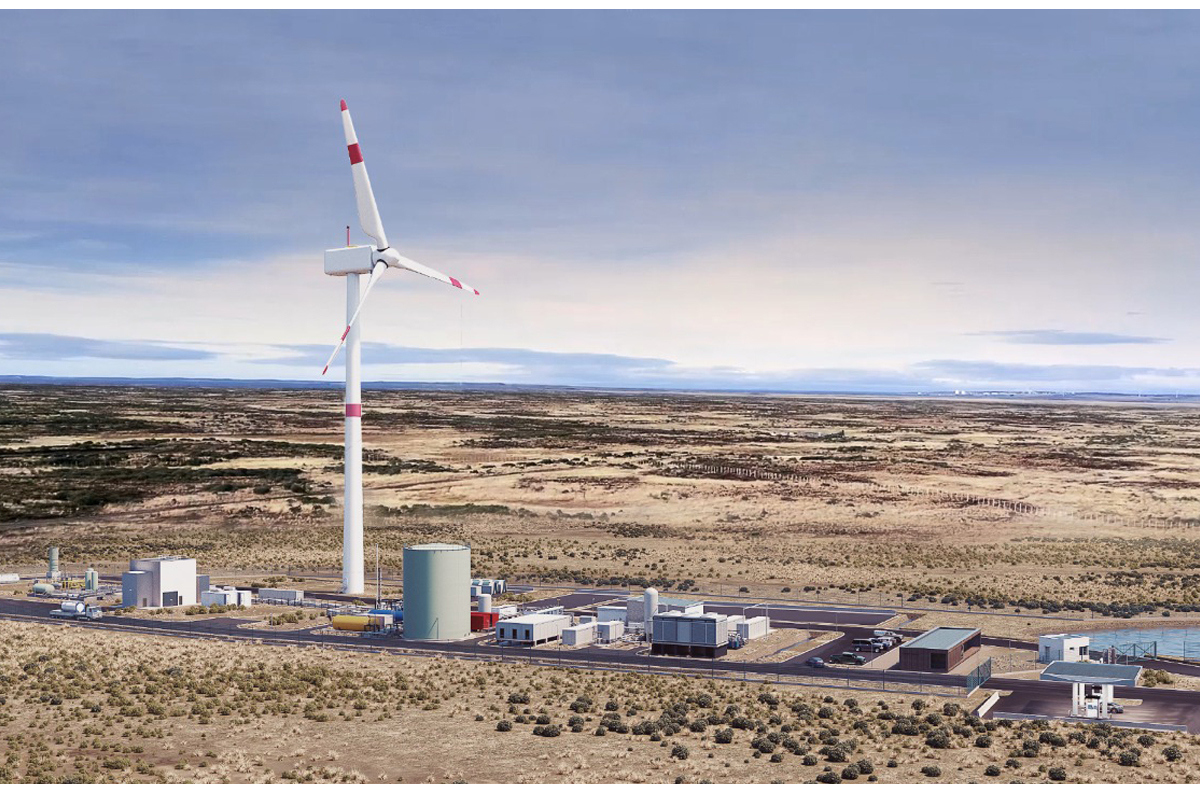
Porsche, Siemens Energy and a consortium of other companies have joined hands to build the world’s first integrated commercial plant to produce near CO2-neutral fuel. Labeled the Haru Oni project and located in Punta Arenas, Chile, the pilot plant is expected to produce around 1,30,000 litres of the synthetic fuel or e-Fuel in 2022. The capacity will then be expanded to around 55 million litres by 2024 and further increased to approximately 550 million litres by 2026.
How is synthetic fuel made?
The plant will be powered by wind power and the consortium says that the excellent wind conditions in the Magallanes region, where the plant is based, help produce the near CO2 neutral fuel.
The process begins with electrolysers splitting water into oxygen and green hydrogen using the wind generated power. CO2 is then captured from the ambient air and combined with the green hydrogen to produce synthetic methanol, which in turn is then converted into gasoline. Thus in essence the fuel is literally made from water and thin air powered by wind energy.
Consequently, the benefit of synthetic fuel is that it can reduce fossil CO2 emissions in combustion engines by up to 90 percent. Best of all, it can run in regular internal combustion engines with little to virtually no modifications required.
Where will the synthetic fuel be used?
Porsche has committed itself to buying the first fuel from Chile and will use it in the Porsche Mobil 1 Supercup race cars from 2022. The German marquee also has plans for the use of the fuel in its road cars. Dr. Michael Steiner, Member of the Executive Board for Research and Development at Porsche AG, said, “Our icon, the 911, is particularly suitable for the use of e-Fuels, but so are our much-loved historic vehicles, because around 70 percent of all Porsches ever built are still on the road today. Our tests with renewable fuels are going very successfully.”
When will synthetic and e-fuels be launched in India?
Besides Porsche cars, the companies involved see worldwide adoption of the fuel though where and which specific regions and countries would adopt this remains to be seen. Speaking to Autocar India at a media briefing, Steiner said “the distribution of the fuel is not our expertise and it’s our partners who will get into the distribution logistics. The geographies or whether it would be available in India and which other regions would largely depend on legislation, taxation and local laws, markets that favor such fuels would naturally get it first.”
What is the cost of synthetic fuel?
For now, the companies involved are tight lipped about the pricing of the e-fuel though they have admitted it is very expensive in this pilot phase. However, by 2026 when production is scaled to a larger level, Porsche expects the price to be below 2 US dollars per litre (INR 150) before any taxes. The fuel is thus likely to be priced above fossil fuels but Porsche are confident that it’s a price many would be willing to pay to keep their internal combustion engine cars running on clean and climate-neutral fuel.
Also See:
BMW showcases iX5 Hydrogen at Munich motor show
Hyundai’s hydrogen plans headlined by 680hp FCEV sports car
